Members of the Scientific Committee of The Future of Education International Conference:
| Robert Pucher Institution: University of Applied Sciences Technikum Wien Country: Austria Areas of Expertise: Higher Education (Computer Science), Curriculum Development, Blended-Learning, Project Based Learning, Project Management in IT-Projects, Software Usability and User Experience Design and Medical Informatics. |
 |
| Robert Mischak Institution: University of Applied Sciences FH Joanneum Country: Austria Areas of Expertise: digital health, eHealth, standards and interoperability in health informatics, DRG-systems, epidemiology, health economics, clinical decision support |
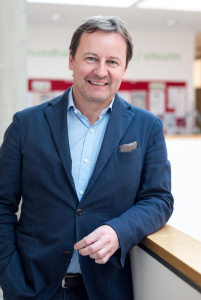 |
| Maria Markova Institution: University of National and World Economy Country: Bulgaria Areas of Expertise: Higher Education, Copyright, Economics and Management of Intellectual Property; Intellectual Property Rights in Design, Biotechnologies, Advertiseing, Publishing Business, Technology and Knowledge Transfer |
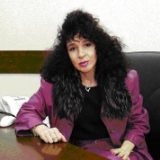 |
| Martin Laba Institution: Simon Fraser University - School of Communication Country: Canada Areas of Expertise: Applied Communication for Social Issues, Education, Pedagogy and Social Change, Media Advocacy, New Learning Environments, Media Education, Civic Engagement, Digital Culture, Education and Popular Culture. |
 |
| Maria Ampartzaki Institution: University of Crete, Greece Country: Greece Areas of Expertise: Early Childhood Education, ICT in Education, Multiliteracies, the Teaching of Social Studies in Preschool and Primary Education, Science Education, the STEAM approach, Music Education, Action Research, and Teacher Training |
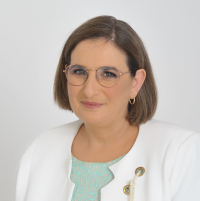 |
| Alan Bruce Institution: Universal Learning Systems Country: Ireland Areas of Expertise: Intercultural Theory and Practice, Social Inclusion, Diversity Management, Migration, Equality Practice, Human Rights, Conflict Transformation, Innovative Pedagogies, e-Learning, Learning Architecture, Evaluation, Research Methodology, Strategic Planning. |
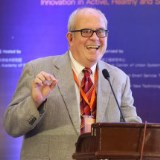 |
| Ann Marcus-Quinn Institution: University of Limerick Country: Ireland Areas of Expertise: Digital Education, Technology in Education, E-Learning, Open Educational Resources. |
 |
| Maria Ranieri Institution: University of Florence Country: Italy Areas of Expertise: Media Education. |
 |
| Luisa Panichi Institution: University of Pisa Country: Italy Areas of Expertise: Language Teaching and Innovation, Learner Advising, Computer Mediated Communication, Virtual World Platforms for Education and Training Including Science and Business. |
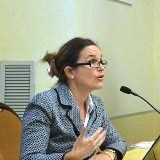 |
| Antonio Cioffi Institution: Accademia di Belle Arti di Brera Country: Italy Areas of Expertise: Pedagogy, New Technologies and Multimedia for Education, Art Education. |
 |
| Ida Cortoni Institution: Sapienza University Country: Italy Areas of Expertise: Media Education, Media and Children, Socialisation. |
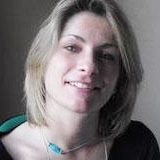 |
| Elisabetta Delle Donne Institution: Pixel Country: Italy Areas of Expertise: Transnational cooperation, international project planning and management, assessment and evaluation, higher education, school education, adult education, vocational training, e-learning, language learning, languages for specific purposes. |
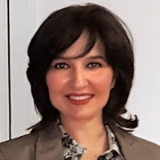 |
| Michela Tramonti Institution: European Training and Research Association for a Cooperation Key to business, EU-Track Country: Italy Areas of Expertise: STEM Education, Teaching and Learning, Innovative Teaching Methodology, Technology-enhanced Learning, Research Innovation, International Project Planning and Management, e-learning, Serious Games, Digital Storytelling, and Artificial Intelligence in Education |
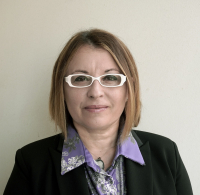 |
| Nahed Emaish Institution: University of Jordan - Department of French Country: Jordan Areas of Expertise: Teaching French as a Foreign Language, Use of Written Press in Teaching Foreign Languages. |
 |
| Vida Drąsutė Institution: Kaunas University of Technology Country: Lithuania Areas of Expertise: Formal and non-Formal Education, e-Learning Processes, Smart and Adaptive Learning Environments, Autonomous Learning. |
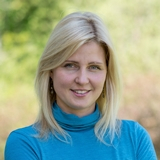 |
| Joseph Vancell Institution: University of Malta Country: Malta Areas of Expertise: Digital Pedagogy, Adult Learning, Online Education, Constructivist Teaching and Learning, Grounded Theory Research, Generative AI in Language Learning. |
 |
| Patrick Murphy Institution: Nord University Country: Norway Areas of Expertise: didactics, methodology, learner focused activities, phonetics, creativity, communication, bringing the world of the learner into a learning context, creating/using/developing learning paths, e-learning |
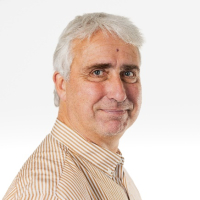 |
| Wafa.a M Ali Ashour Institution: Ministry of Education and Higher Education Country: Palestinian Territory, Occupied Areas of Expertise: Diverse experiences and achievements in academic, practical, media, and training fields, reflecting high competence and the ability to lead and develop in the education and early childhood sector |
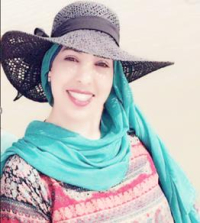 |
| Clara Vasconcelos Institution: University of Porto Country: Portugal Areas of Expertise: Teaching and Internationalization, Higher Education, Middle Education, School Education, Geoethics, Environmental Education, Science Education (Biology and Geology), Educational Research, Teaching Methodologies. |
 |
| Isabel Pedrosa Institution: Polytechnic Institute of Coimbra, Coimbra Business School / ISCAC-IPC, CEOS.PP -Coimbra, ISTAR – IUL Country: Portugal Areas of Expertise: Information Technologies acceptance, STEAM teaching and researching, Gender Gap in Information Technologies, Business Intelligence and Analytics and Data and Fraud Detection, higher education, adult education. |
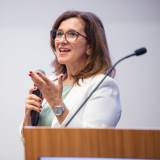 |
| Anca Colibaba Institution: GR. T. Popa University / EuroED Foundation Country: Romania Areas of Expertise: Applied Linguistics, ESP, CLIL, Sciences of Education, Innovation in Education, Quality Assurance in Education, CLIL Approaches to the Communication Patient-Medical Staff and Bioethics. |
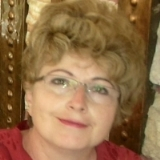 |
| Stefan Colibaba Institution: Al. I. Cuza University Country: Romania Areas of Expertise: CLIL Approaches to Teaching Science Subjects, Education Sciences, English for Specific Purposes, Curriculum development, Quality Assurance in Higher Education. |
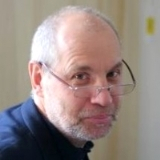 |
| Tatiana Sidorenko Institution: Tomsk Polytechnic University Country: Russian Federation Areas of Expertise: Language Education in Higher Institutions, English for Specific Purposes, Academic Writing (Language as a Tool for Scientific Development), University Management, System Analysis in Language Education, Electronic Means in Language Education. |
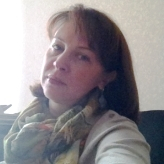 |
| Karine Chiknaverova Institution: MGIMO University Country: Russian Federation Areas of Expertise: Theory and Methods of Teaching Foreign Languages at University, English for Specific Purposes, Legal Translation, Learners` Autonomy and Independence, Learners` Language, Error Analysis. |
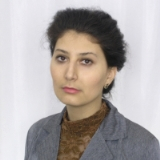 |
| Tatiana Kharitonova Institution: The State Hermitage Museum Country: Russian Federation Areas of Expertise: Analytical Researches, Classical & Contemporary Arts, Design, Psychology of Visual Image, Criterion of Art Perception and Creativity, Language of Visual Art, Emotional Factors in the Evaluation of Art, Theory and Practice of Communication. |
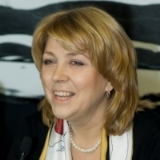 |
| Lebogang Mosupye-Semenya Institution: Johannesburg Business School Country: South Africa Areas of Expertise: Fourth Industrial Revolution (4IR), Digital Technologies, Digital Transformation, Small and Medium Enterprises, Innovation, Inclusion, Project Management, Engineering Design, and Asset Management. |
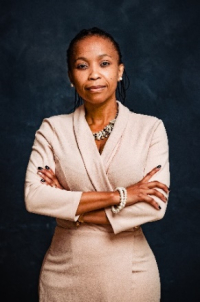 |
| Giovanna Campani Institution: Universidad Pablo de Olavide Country: Spain Areas of Expertise: intercultural education; comparative pedagogy; social pedagogy; anthropology of gender (in the context of cultural pedagogy); processes of inclusion/exclusion; equal opportunities; migrants’ integration in the education system and in society; women’s migration; migration policy and asylum; the dynamics of racism and hate speech; trafficking in human beings; unaccompanied minors |
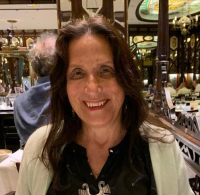 |
| Martin Dvorak Institution: Södertörns University Country: Sweden Areas of Expertise: Pragmatics, Namely Language of Persuasion, Language Acquisition, Language Teaching and Learning. |
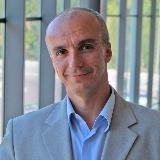 |
| Julia Huisman Institution: NHL Stenden University Country: The Netherlands Areas of Expertise: Internationalisation of the Curriculum, Development of Soft Skills in Higher Education, Emotional Intelligence, Positive Psychology, Empathy, Intercultural Communication, Diversity, Inclusion |
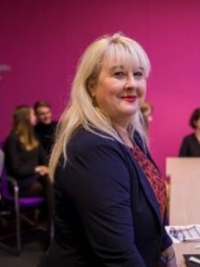 |
| Dönercan Dönük Institution: Mersin University Country: Turkey Areas of Expertise: Quality of Teacher Education and Training, Teaching Lexico-Grammar through ICT, Teaching Young Learners, Drama, Applied Linguistics, Teaching Turkish to Foreigners. |
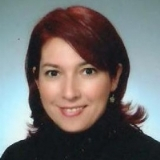 |
| Vildan Özdemir Institution: Mersin University Country: Turkey Areas of Expertise: Initial Teacher Education, Material Development in Language Teaching, Language Teaching History. |
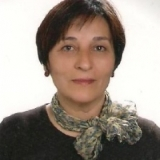 |
| Joanne Hughes Institution: Queen’s University, Belfast Country: United Kingdom Areas of Expertise: Main research interests include the role of education in divided societies, social justice, peacebuilding in education, and intergroup relations. |
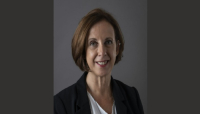 |
| Marina BA Minoli Institution: Royal Society of Biology Country: United Kingdom Areas of Expertise: Biomedical Science Education, Neuroscience Didactics Research, Bioinformatics Didactics, IBSE Didactics and Molecular Biology Projects, Science Communication, Health Education, STEM Digital Education Research, Innovative and Interdisciplinary Teaching Methods, Training of Science Teachers. |
 |
| Rotimi Joseph Institution: University of Brighton Country: United Kingdom Areas of Expertise: International project cost management, Sustainable construction, construction related curriculum development, flood risk management at household levels, Cost benefit analysis of intangible impact of flood risk, psychological and mental health impact of natural disaster on communities and nations at large. |
 |
| Jamie Smith Institution: University of Lincoln Country: United Kingdom Areas of Expertise: Mathematics education; educational psychology; international project planning and management; assessment and evaluation; higher, school, and adult education; language learning and curriculum development. |
 |
| Claudia Peralta Institution: Boise State University Country: United States Areas of Expertise: Preparation of teachers working with rural multilingual students and their families |
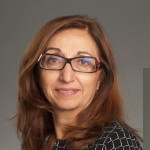 |
| Haohsiang Liao Institution: Massachusetts Institute of Technology Country: United States Areas of Expertise: Digital Learning, Chinese Language Pedagogy, Second Language Acquisition, Teacher Training and Evaluation. |
 |
| Hardin L.K. Coleman Institution: Boston University - Wheelock College of Education and Human Development Country: United States Areas of Expertise: Minority Student Achievement, Multicultural Counseling and School Counselor Competence, Developing Evidenced Driven Approaches to Educational System Change. |
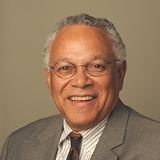 |
 The Future of Education
The Future of Education





























